In a blog post dated May 20, 2015, Seth Godin asks:
Is it meeting your needs…
Or merely creating new wants?
Is it honoring your time or squandering your time?
Is it connecting you with those you care about, or separating you from them?
Is it exposing you or giving you a place to hide?
Is it important, or only urgent?
Is it right, or simply convenient?
Is it making things better, or merely more pressing?
Is it leveraging your work or wasting it?
What is it for?
This list of questions is both haunting and open-ended. I feel I know what “it” means: the thing you choose. So ask these questions about the things you choose.
That sort of rigor is something I’m looking for to help me make decisions. I continue to imagine there is a tool out there that when I find it, all will suddenly become clear and drop into place and I’ll see the next steps of my life spread out before me, each mile numbered and labeled… Then I snap to and realize that I’m going to have to keep paying my money and taking my chances, like anyone else. So far this year I’ve paid at least $1700 to learn what NOT to do, and I’d really like to start learning more cheaply, but of course, that is probably how I got into this fine mess in the first place.
But Godin’s list seems like it might be a good place to start, especially when I want to sign up for a class or workshop or seminar or coaching session or de-programming or re-programming.
So let me consider right now the course I’m considering enrolling in (a 9-month certificate in memoir-writing), and you can see how this tool works when I hold it in my hands.
Is it meeting your needs or merely creating new wants?
For over two years I’ve been collaborating with my sister on a memoir about our father, who died in January 2013. This course could definitely address real needs, providing me with a structure and information and a forum for writing regularly that would be very helpful.
Is it honoring your time or squandering your time?
I get a lot out of organized formal education, especially the non-mandatory kind, so assuming it is well-structured and well-run, I would imagine that a weekly meeting would be worth my time, and I’d be able to figure out in the first quarter if I was to continue in the remaining quarters.
Is it connecting you with those you care about, or separating you from them?
I’m going to see if my sister is also interested in taking the class, though I think it might be a bit much for her, since her full-time job and family life take most of her focus. It would help me stay connected to my father, however, and give me impetus to reconnect with his cousins.
Is it exposing you or giving you a place to hide?
A class with people who aren’t my family would be exposed, and give me the opportunity to have my writing critiqued in ways my family wouldn’t necessarily do.
Is it important, or only urgent?
The book is important to me, though it has lost its urgency as I get more experienced with the grief of losing my dad.
Is it right, or simply convenient?
I don’t know if this program has anything specific I need other than convenience. It has a lot of convenience, being located within walking distance of my home and a fair price for tuition.
Is it making things better, or merely more pressing?
Again, I have no way of knowing about the actual quality without experiencing it. The description of what is covered gives me some insights, as does having gone through another certificate program at the same institution, run on the same schedule. I’d say it would definitely make the writing more pressing, which I find helpful, the way I found spending two years getting a creative writing degree helpful in making me a better writer who wrote more.
Is it leveraging your work or wasting it?
I’m not sure it would do either one, though having other writers read my work would help me build my network of readers and we could easily spread the word for each other.
What is it for?
It is a structure for me to get back on track and writing in a specific mode in a formalized way. It would ask me to participate on someone else’s timeline, which is one of the benefits I see in formal education.
There is more investigation to be done here, and additional questions I might want to ask in other situations (such as, who has recommended this to me? what is their stake? what do I know about the teacher and who can I ask questions of whom I trust?), but I like the idea of slowing down before I pay up.

Thank you for this! It’s a great framework for reflection. I am going to use this today as a litmus test for something I am considering. For me, I think I need to evolve the question “Is it honoring my time or squandering my time?” Often “it” requires time that may exceed what I can give it but I really want the information! Then stress arises. Sometimes I just take a bite of a program and it’s totally worth it yet I have failure to complete guilt!
I signed up for a program that I completely “got behind” in, while being told there was no “behind.” The people I’ve met in the group have been worth the price of admission, but it is stressful to have conversations in my head about my engagement.